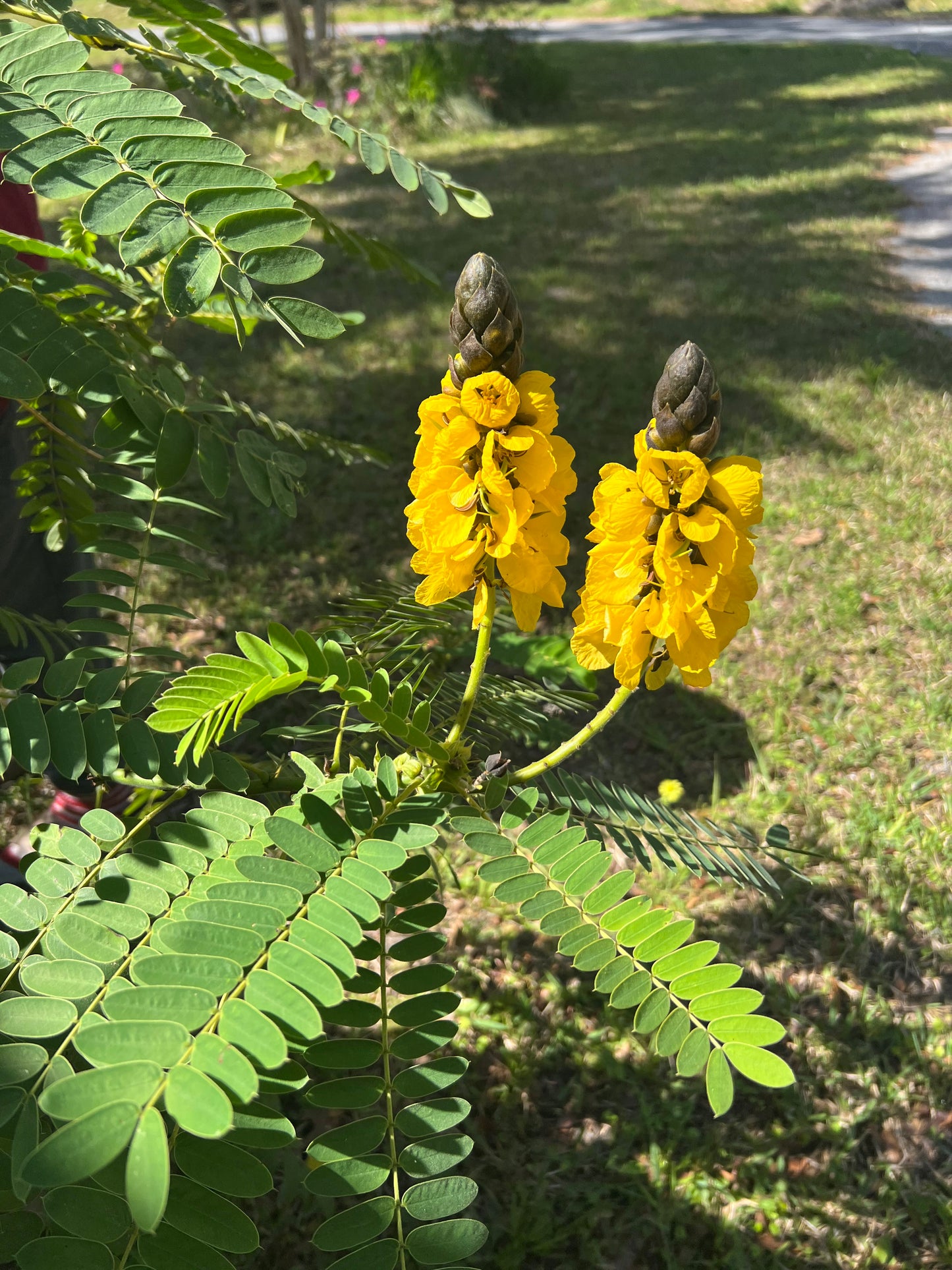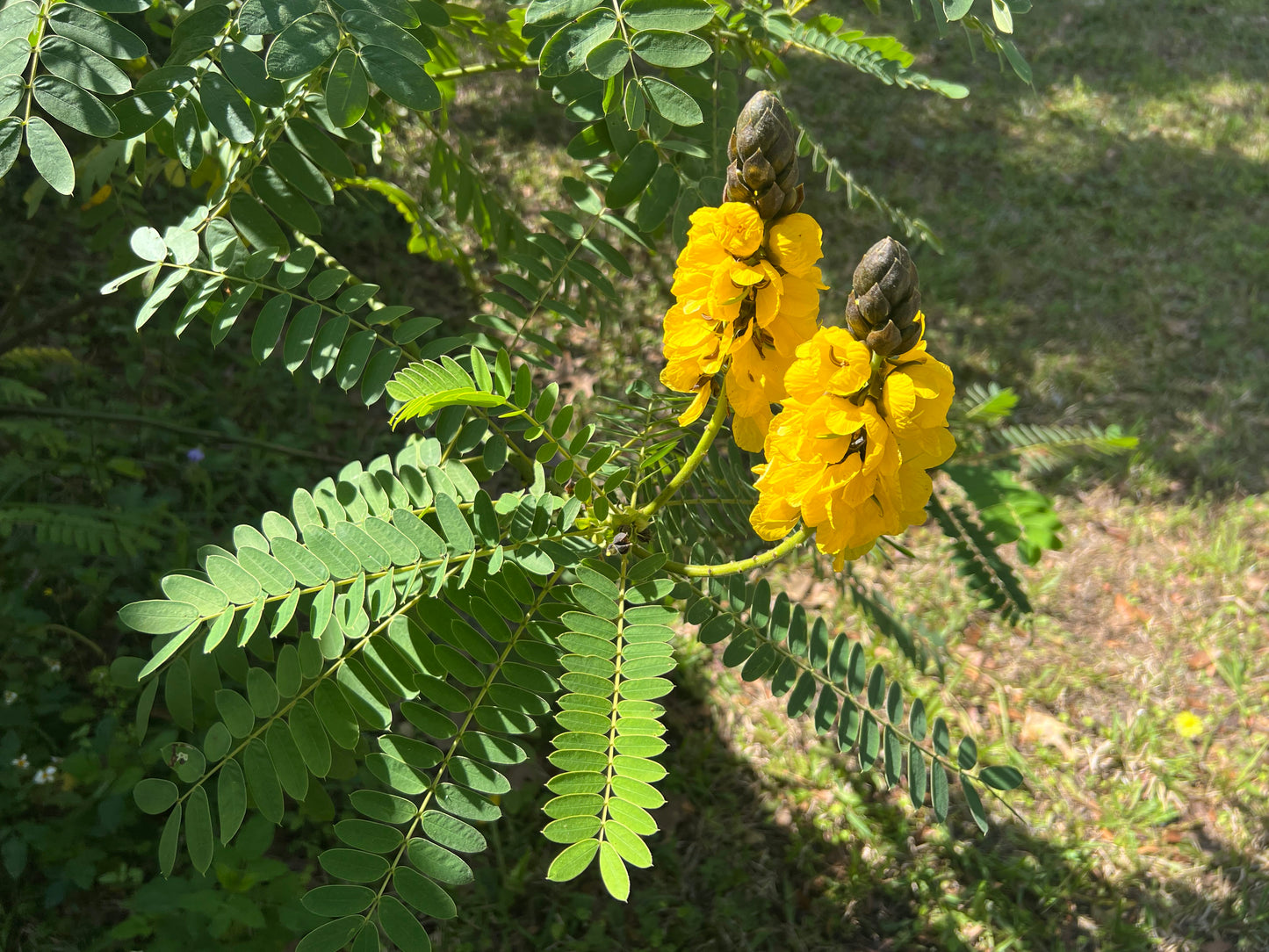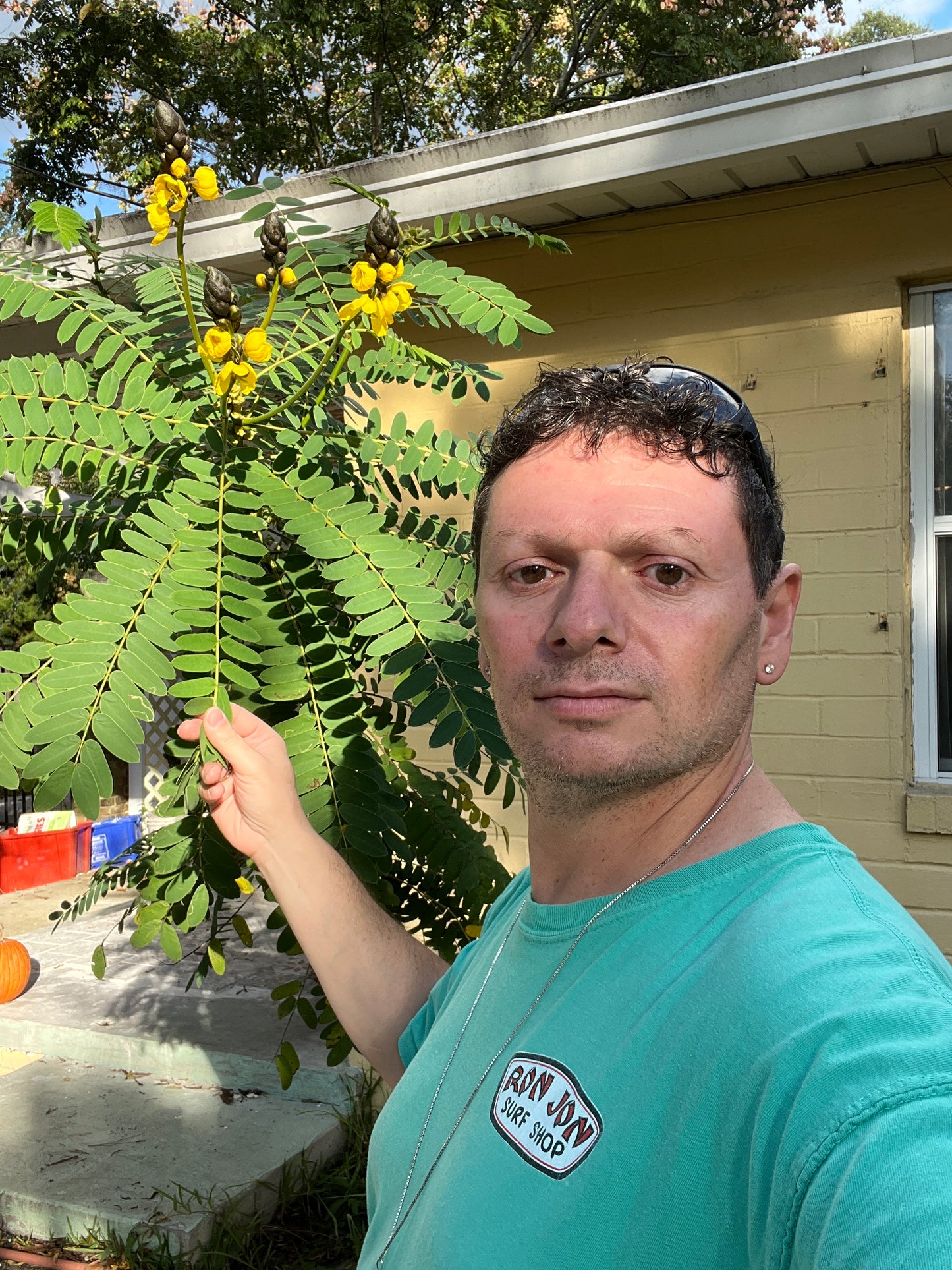Floridaseeds
Popcorn Cassia 10 Seeds Cassia didymobotrya
Popcorn Cassia 10 Seeds Cassia didymobotrya
Couldn't load pickup availability
The Popcorn Cassia is an aromatic, flowering shrub in the legume family. It has bright yellow flowers in tall, upright clusters. The flower clusters are held above the leaves on long, green stems. The rubbed leaves have the scent of freshly buttered popcorn. It usually grows up to about 15 feet in height. It is also known as the candelabra tree. Native to Africa. Hardy in zones 9-12. Here are its key features:
Growth Habit: This perennial shrub can reach heights of 1 to 2 meters, often forming a bushy appearance.
Leaves: The leaves are bright green, pinnate, and can grow up to 20 cm long, giving them a feathery look.
Flowers: It produces striking yellow flowers that bloom in clusters. Each flower has five petals and is arranged in racemes, providing a vibrant display.
Fragrance: The plant is noted for its aromatic leaves and flowers, which release a pleasant scent when crushed.
Habitat: Cassia didymobotrya thrives in warm, sunny environments and well-drained soils, making it suitable for gardens and landscaping.
This plant is valued for its beauty and fragrance, making it a popular choice for gardens and ornamental landscaping.
Growing Instructions for the Popcorn Cassia
The seeds have a hard seed coat that has to be treated, or scarified, in order for water to enter the seeds so that they can sprout. The seeds have a better rate of germination if they are scarified. 1. Scarify the seeds by nicking or sanding the seed coat. The seeds can be sanded with sandpaper, a nail file or an emery board. 2. Soak the seeds in water for 24 hours. 3. Put a mixture of potting soil and sand or perlite into a pot with drainage holes in the base. 4. Sow the seeds on the soil. 5. Cover the seeds with a layer of soil that is 0.5 inches thick. 6. Water the seeds. Keep the soil moist but not wet. 7. The seeds take 3-6 weeks to germinate. 8. When the plants are a few inches tall, they can be transplanted.











